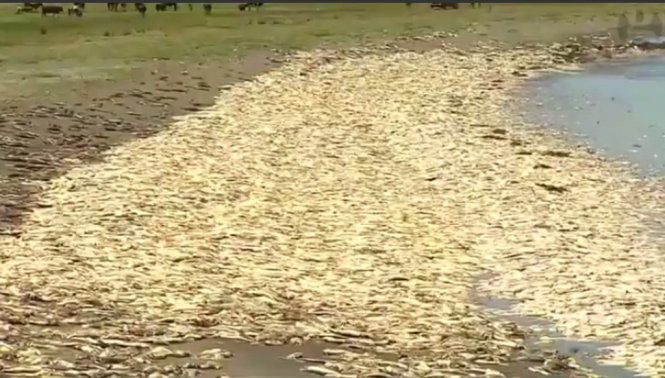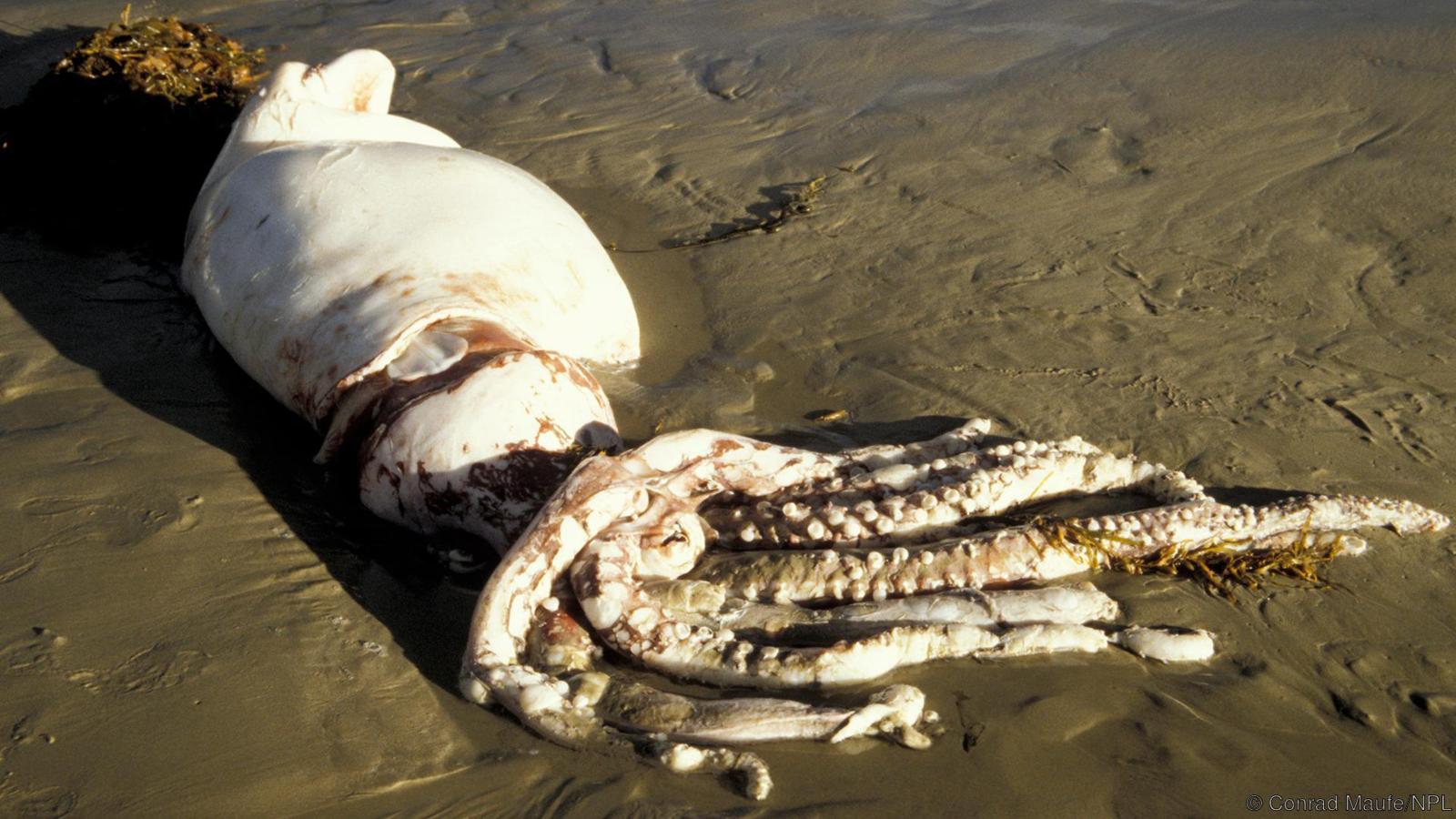The Chilean coast is filled with thousands of unusually dead giant squids.
According to the residents of Santa Maria Island in southern Chile, an unusual phenomenon has occurred where giant squids have been washing ashore for the past five days. The quantity of stranded squids has reached thousands, significantly higher than previous occurrences, resulting in a densely populated coast.

Over time, the squids have started to decompose, emitting a foul odor. Despite the authorities’ efforts to clean up, they are struggling to keep up with the magnitude of the situation, leading to concerns about public health.
Local experts and law enforcement, as reported by NBC, are evaluating the severity of the situation to determine if it could lead to a sanitation emergency. On January 14 (local time), heavy machinery was deployed to remove the squids. However, the authorities have faced criticism from the public due to their slow response. An investigation is currently underway to ascertain the reasons behind this unprecedented occurrence of a large influx of stranded squids.

Slowly processed dead squid can be disturbed to make people worried about health effects – (Photo taken from clip).
Experts have initially suggested that this phenomenon could be attributed to an oceanic event known as “upwelling,” where cold, nutrient-rich, and dense seawater from the ocean floor rises to the surface, replacing warmer water.

This upwelling process is believed to be responsible for the influx of dead squids drifting ashore. The cold, nutrient-rich water attracts squid, which gather in large numbers. However, the exact reasons for such a significant increase in the number of stranded squids this year are still under investigation.
Massive squid death video hit Chile’s sea cow – (Source: NBC).
The local authorities and experts are closely monitoring the situation to assess the potential environmental and health implications. The prolonged cleaning efforts and the slow response of the authorities have raised concerns among the community. The authorities are now working to expedite the cleanup process and address the health risks associated with the decaying squids.

Further research and analysis will be conducted to gain a comprehensive understanding of this phenomenon and to develop appropriate measures to prevent or mitigate similar occurrences in the future. The findings will also help in evaluating the impact on the local ecosystem and implementing necessary conservation efforts.

In the meantime, the residents of Santa Maria Island and surrounding areas are urged to avoid direct contact with the dead squids and follow any health advisories issued by the authorities.
The unusual event of large numbers of stranded squids has drawn attention from around the world, with marine biologists and experts closely monitoring the situation. The incident highlights the importance of studying and understanding the ocean and its complex ecosystem.

The ocean plays a vital role in regulating global climate and providing food and resources for millions of people around the world. It is crucial to monitor and protect the ocean and its inhabitants from potential threats, including human activities such as overfishing, pollution, and climate change.

Efforts to conserve and protect the ocean require the collaboration and participation of all stakeholders, including governments, industry, and communities. Only through concerted and sustained efforts can we ensure a sustainable future for our oceans and the life it supports.
